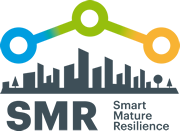Resources
PUBLICATIONS AND DOWNLOADS
Design Principles for the Use of Social Network Services
Date
30/11/2016
Deliverable
D4.3
Lead Partner
CIEM, University of Agder
Authors
Tim A. Majchrzak, Mihoko Sakurai (CIEM, University of Agder)
Co-Authors
Hayley Ash (Bristol)
Jakob Østergaard (Vejle)
Jaziar Radianti (CIEM, University of Agder)
Julie Robertson (Glasgow)
(Silje Solvang) (Kristiansand)
This report was prepared in the framework of Work Package (WP) 4, i.e. the WP that is developing the Resilience Engagement and Communication Tool, and in particular a toolbox and a prototype. Specifically, this report is the third deliverable (D4.3) of this work package. It presents design principles for the use of social network services to promote citizen engagement. This is facilitated by the task of integrating social media communication with citizens as part of the Resilience Information Portal that is also currently finalized. Overall, WP4 provides a collaborative environment that facilitates awareness and engagement among key stakeholders and partners in resilience building activities.
This report takes into account the feedback from the partner CITIES on the specific functionalities and qualities of the Resilience Information Portal, developed by CIEM (Center for Integrated Emergency Management), Universitetet i Adger, in collaboration with TECNUN, University of Navarra.
The report is divided into eight sections: after an introduction, Sections 2 and 3 jointly focus on providing information on context, background and methods used. Section 4 discusses the relevance and importance of social media integration for increasing citizen engagement in cities. Section 5 focuses on the design principles and Section 6 provides the functional specification of the tool based on the identified design principles and the specification presented in D4.2. Section 7 summarizes testing scenarios for utilizing the functional specification and for aiding implementation and usage of the Resilience Information Portal, referring back to the interactive exercises that were conducted during the project΄s review workshop in Kristiansand, September 2016. The eighth and final Section of this document summarizes the deliverable report in brief and provides general conclusions touching upon the important issue of the tool’s integration with the Resilience Maturity Model.

This project has received funding from the European Union’s Horizon 2020 research and innovation programme under grant agreement no. 653569.

